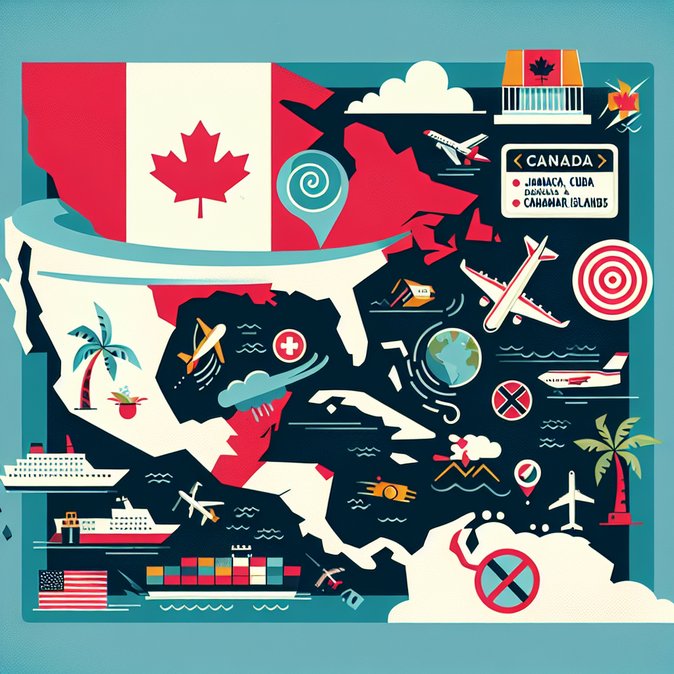
Global Affairs Canada (GAC) updated its Travel Advice and Advisories portal on 20 November 2025, urging Canadians to avoid non-essential travel to Jamaica, Cuba, the Bahamas, Haiti and the Cayman Islands as Category-5 Hurricane Melissa barrels through the northern Caribbean. The rare blanket advisory comes at the start of Canada’s winter-vacation season, when hundreds of thousands of Canadians flock south.
Airlines have begun waiving change fees, but charter operators warn that seat availability for re-bookings will be tight until mid-December. Corporate travel managers should activate contingency plans for executives scheduled to visit regional mining, banking and tourism projects; remote work or postponement may be the safest route. Travellers already in affected countries are advised to register with the GAC “ROCA” service and follow local shelter instructions.
![Ottawa Issues ‘Avoid Non-Essential Travel’ Advisory for Five Caribbean Nations as Hurricane Melissa Intensifies]()
Insurance providers remind policy-holders that trips booked after the advisory’s publication may not be covered for hurricane-related claims. Mobility teams relocating staff to Canadian mining operations in Jamaica’s Saint Ann parish or financial-services hubs in Nassau should review force-majeure clauses and confirm the status of critical infrastructure such as airports, ports and cell networks.
The advisory underscores the broader trend of climate-related mobility disruption. Companies are increasingly building meteorological risk into assignment cost projections and drafting ‘hurricane clauses’ in expatriate contracts that cover evacuation, housing and per-diem allowances.
GAC will reassess the advisory once Melissa moves north-east toward open Atlantic waters. Until then, travellers should expect airport closures, curfews and power outages across the region.
Airlines have begun waiving change fees, but charter operators warn that seat availability for re-bookings will be tight until mid-December. Corporate travel managers should activate contingency plans for executives scheduled to visit regional mining, banking and tourism projects; remote work or postponement may be the safest route. Travellers already in affected countries are advised to register with the GAC “ROCA” service and follow local shelter instructions.

Insurance providers remind policy-holders that trips booked after the advisory’s publication may not be covered for hurricane-related claims. Mobility teams relocating staff to Canadian mining operations in Jamaica’s Saint Ann parish or financial-services hubs in Nassau should review force-majeure clauses and confirm the status of critical infrastructure such as airports, ports and cell networks.
The advisory underscores the broader trend of climate-related mobility disruption. Companies are increasingly building meteorological risk into assignment cost projections and drafting ‘hurricane clauses’ in expatriate contracts that cover evacuation, housing and per-diem allowances.
GAC will reassess the advisory once Melissa moves north-east toward open Atlantic waters. Until then, travellers should expect airport closures, curfews and power outages across the region.


